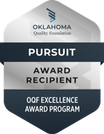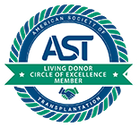LIFESHARE OF OKLAHOMA USES TECHNOLOGY TO TRACK ORGAN DELIVERY
PROTECTING PRECIOUS GIFTS

In a time where technology is king, LifeShare of Oklahoma has proactively partnered with a technology company to automate tracking donated organs as they are being delivered to transplant teams waiting to save a precious life.
A few years back, Dr. Randall Sung, who is a Professor of Surgery and Surgical Director of Kidney and Pancreas Transplantation at Michigan Medicine, posed a good question, “If I can see my pizza being delivered, why can’t we have the same technology to track delivery of organs?” This stuck with and inspired someone at LifeShare to make this a reality for their transplant center partners.
When organs are donated for transplant, the organs either stay locally in our community or are sent to someone awaiting a life-saving organ transplant outside of our state. Organs can travel hundreds to thousands of miles away from the location where they were donated. The associated logistical challenges are complex, including travel by both ground and air.
LifeShare’s prior tracking process was quite laborious involving phone calls to dispatchers and drivers to determine where an organ was at any given time. We are now using technology to create transportation transparency for everyone involved.
LifeShare has partnered with LandAirSea, a tracking asset management company, to incorporate GPS technology into our organ transporting efforts. When the donated organs are not in the custody of a transplant center or LifeShare team member, the device will allow all parties involved to pinpoint their location while in transit.
A link is sent to the receiving transplant team, who can then get near real time location updates. This allows for better planning and utilization of resources and is an added level of security for the priceless gifts. The devices are reusable to keep cost and impact on the environment low.
“LifeShare is always working to facilitate best practices in organ donation. We are pleased to implement technology that can benefit all parties involved,” said Jeffrey Orlowski, President and CEO of LifeShare. “While we have not had an issue with an organ being lost in transit, we implemented this practice as a proactive measure because LifeShare believes that as stewards of such a precious gift, we can never be too safe in making sure the donated organs are delivered as intended.”
“This is a prime example of organ procurement organizations exploring opportunities to maximize the gifts from donation,” Orlowski said. “At LifeShare, we are proud to be part of pioneering new techniques that will ultimately save more lives.”
A few years back, Dr. Randall Sung, who is a Professor of Surgery and Surgical Director of Kidney and Pancreas Transplantation at Michigan Medicine, posed a good question, “If I can see my pizza being delivered, why can’t we have the same technology to track delivery of organs?” This stuck with and inspired someone at LifeShare to make this a reality for their transplant center partners.
When organs are donated for transplant, the organs either stay locally in our community or are sent to someone awaiting a life-saving organ transplant outside of our state. Organs can travel hundreds to thousands of miles away from the location where they were donated. The associated logistical challenges are complex, including travel by both ground and air.
LifeShare’s prior tracking process was quite laborious involving phone calls to dispatchers and drivers to determine where an organ was at any given time. We are now using technology to create transportation transparency for everyone involved.
LifeShare has partnered with LandAirSea, a tracking asset management company, to incorporate GPS technology into our organ transporting efforts. When the donated organs are not in the custody of a transplant center or LifeShare team member, the device will allow all parties involved to pinpoint their location while in transit.
A link is sent to the receiving transplant team, who can then get near real time location updates. This allows for better planning and utilization of resources and is an added level of security for the priceless gifts. The devices are reusable to keep cost and impact on the environment low.
“LifeShare is always working to facilitate best practices in organ donation. We are pleased to implement technology that can benefit all parties involved,” said Jeffrey Orlowski, President and CEO of LifeShare. “While we have not had an issue with an organ being lost in transit, we implemented this practice as a proactive measure because LifeShare believes that as stewards of such a precious gift, we can never be too safe in making sure the donated organs are delivered as intended.”
“This is a prime example of organ procurement organizations exploring opportunities to maximize the gifts from donation,” Orlowski said. “At LifeShare, we are proud to be part of pioneering new techniques that will ultimately save more lives.”








